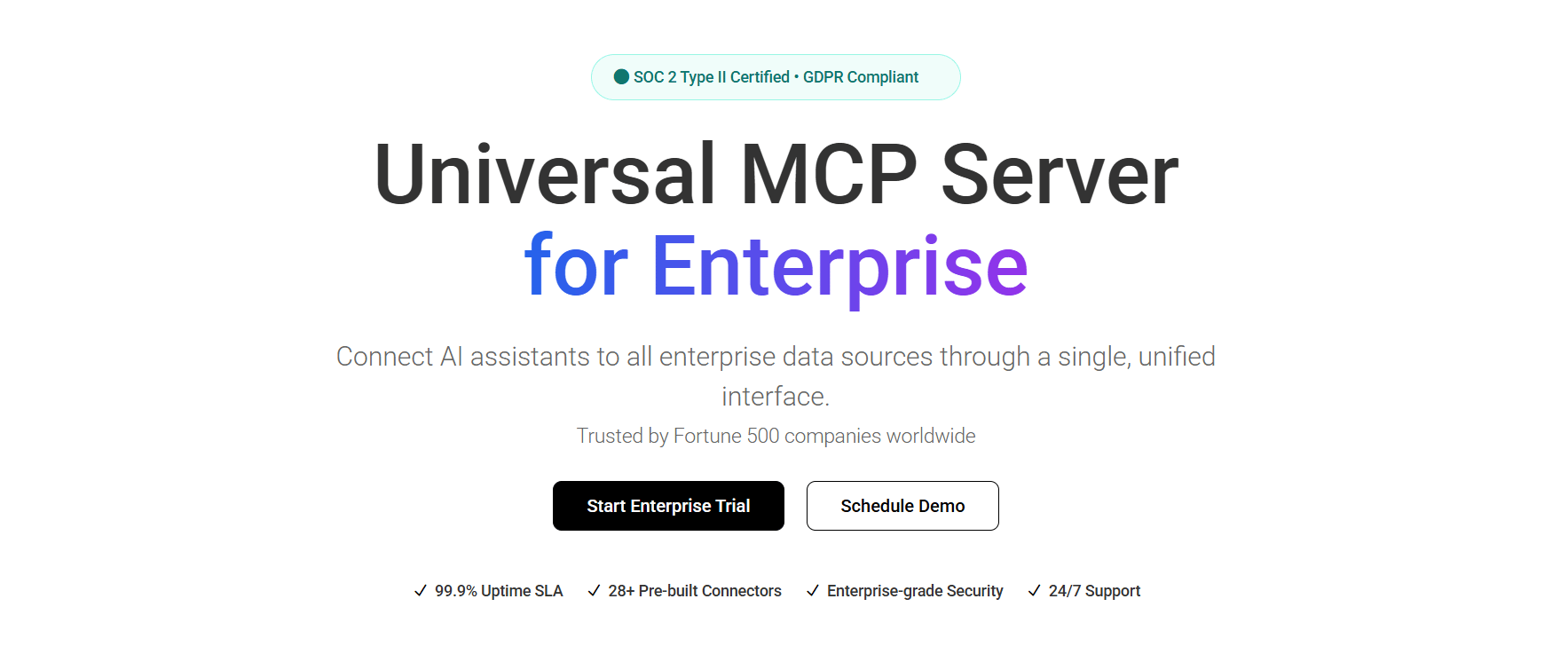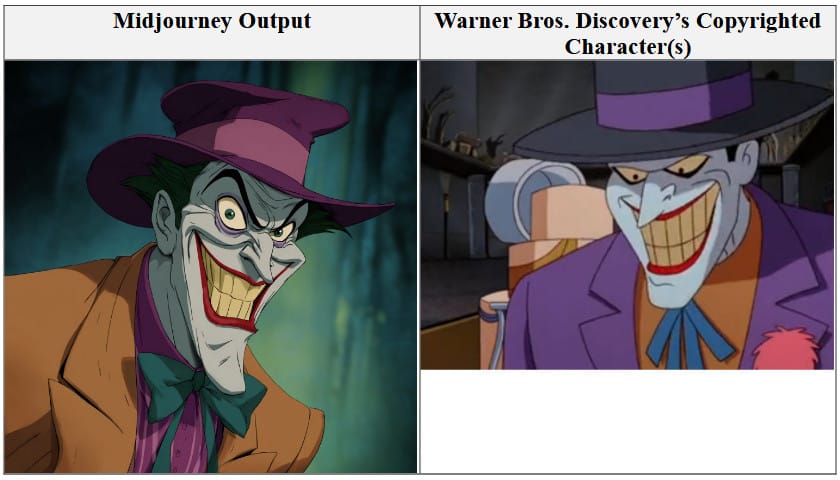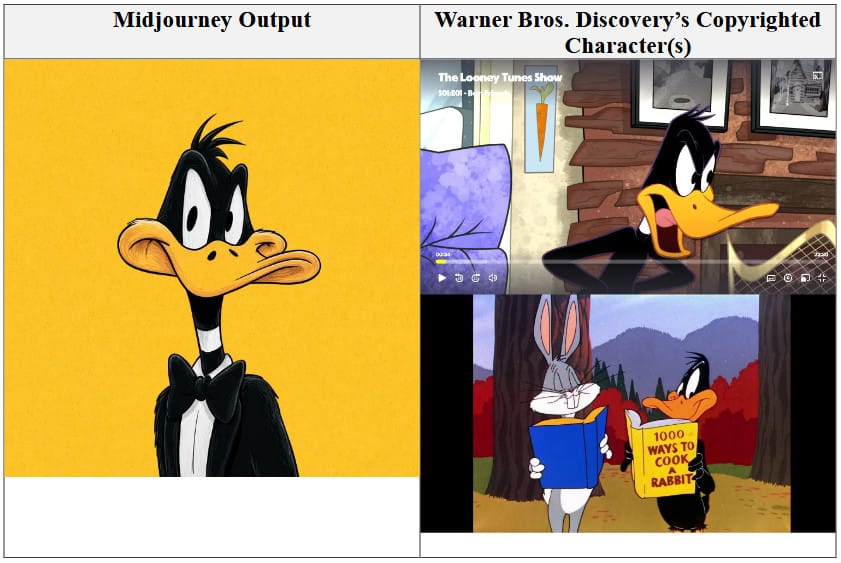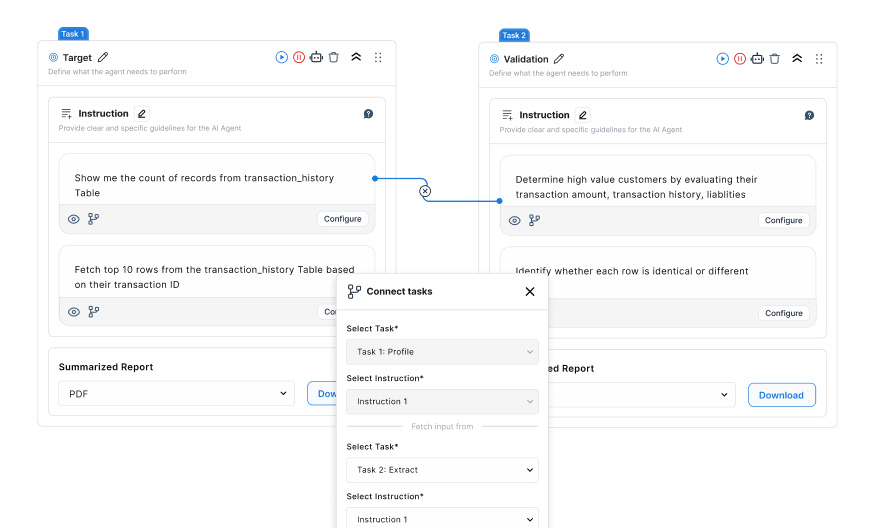- Towards AGI
- Posts
- Hollywood And Authors Confront GenAI Over Predatory Practices
Hollywood And Authors Confront GenAI Over Predatory Practices
The Creatives Strike Back!
Here is what’s new in the AI world.
AI news: Studios, Authors Mount Legal Challenge to Generative AI
Open AI: Hugging Face Powers ESCP's AI Education
OpenAI: The AI Chip Arms Race Heats Up as OpenAI Teams with Broadcom
Hot Tea: OpenAI-Backed AI Film Debuts at Cannes
Connect AI To Everything: Introducing the Universal MCP Server

Introducing the Universal MCP Server for Enterprise, the unified gateway that connects AI assistants to all your enterprise data sources through a single, secure interface.
Trusted by Fortune 500 companies worldwide, our platform ensures seamless and intelligent access to your organization’s data, anytime, anywhere.
Why choose Universal MCP Server?
99.9% Uptime SLA
28+ pre-built connectors
Enterprise-grade security
24/7 dedicated support
Elevate your AI infrastructure with reliability, scalability, and peace of mind.
The Backlash Begins: Creatives Push Back Against GenAI
The generative AI industry is confronting escalating legal challenges, as recent lawsuits from major Hollywood studios and authors threaten to fundamentally alter how creative fields, including animation, engage with the controversial technology.
Last Thursday, Warner Bros. joined Disney and Universal in filing a lawsuit against Midjourney, alleging the AI tool enables users to create infringing images of iconic characters like Superman and Bugs Bunny.
The following day, Anthropic agreed to a landmark settlement, potentially the largest of its kind in U.S. history, with authors and publishers who accused the company of training its AI on copyrighted books without permission.
The settlement could amount to $1.5 billion, or roughly $3,000 per book used.
These cases are setting powerful new legal precedents that may shift control back to artists and creators over how their work is used by AI systems.
Content creators argue that AI companies have unfairly used protected material to train models without consent or compensation. If courts rule in their favor, AI firms could face massive financial penalties and be forced to establish licensing agreements.

Midjourney, a primary target in these lawsuits, can quickly replicate both hand-drawn and CG animation styles, raising concerns that AI could displace human artists. Many examples in the lawsuits show the AI closely mimicking copyrighted characters and visual styles.
If courts push AI companies toward licensing, animation assets, such as concept art, storyboards, and character designs, could become valuable training data that requires permission and payment to use.

While large studios may navigate these changes with legal support, independent animators could find it difficult to protect their work.
Much like the music industry’s transformation after the Napster era, AI may be pushed toward a licensing model. For animators, this could reduce the immediate threat of replacement by AI but also potentially lower the market value of their creative work, similar to how musicians today earn limited royalties from streaming platforms.
The Anthropic settlement still requires judicial approval, and the Midjourney cases are in early stages. But the trend is clear: unchecked use of copyrighted material in AI training is now facing serious legal pushback, with the animation industry at the center of the battle.
11,000+ ESCP Business School Students Gain Access to Hugging Face's AI Platform
ESCP Business School has entered a transformative partnership with Hugging Face, the premier open-source AI platform co-founded by its alumnus Clément Delangue. This alliance represents a major milestone in ESCP’s strategy to embed artificial intelligence across its academic, research, and operational activities.
Building on earlier AI initiatives, such as providing ChatGPT Edu access in collaboration with OpenAI, training over 1,000 students and staff as “AI Champions,” and incorporating AI into curricula and operations, this partnership reinforces ESCP’s role as an innovator in business education.
As part of the collaboration, the entire ESCP community, including more than 11,000 students and 1,000 faculty and staff, will receive complimentary access to Hugging Face’s cutting-edge AI models and full platform.
Interesting new 3D Gen demo on Hugging Face 👀
ReconViaGen: uses reconstruction priors and controlled diffusion to hallucinate missing views and deliver complete consistent 3D models from sparse overlap.
— Victor M (@victormustar)
10:30 AM • Sep 8, 2025
This will support hands-on learning, research, and entrepreneurship. Additionally, ESCP will integrate Hugging Face’s “Learn” hub to further strengthen AI literacy throughout its six European campuses.
Prof. Léon Laulusa, Executive President and Dean of ESCP, emphasized: “Through Hugging Face, our community is not just studying AI; they are creating with it.
This reflects our ‘Bold and United’ vision, treating AI as a new language for management and innovation. ESCP is becoming a living lab for generative AI in education, with plans to develop a sovereign, transformative platform.”
Clément Delangue, CEO of Hugging Face and ESCP graduate (MiM, 2012), added: “It’s inspiring to give back to the school where my entrepreneurial journey began.
As the world’s oldest business school, ESCP is fully embracing AI's educational potential. By joining our academia hub, students and faculty can actively participate in building AI through open science and open-source tools at no cost.”
Through this partnership, ESCP students will benefit in several key ways:
Develop data science skills by working with advanced AI models for coursework and research, both inside and outside the classroom.
Showcase and certify their expertise by publishing projects on Hugging Face’s global platform, enhancing their portfolios with demonstrable skills attractive to employers.
Accelerate entrepreneurial projects via ESCP’s Blue Factory incubator, using Hugging Face to prototype and integrate AI into MVPs quickly and cost-effectively.
OpenAI Partners with Broadcom to Develop In-House AI Chip
OpenAI is reportedly developing its own custom AI chip in partnership with Broadcom, with plans to deploy it internally by 2026.
The chip is intended to enhance the performance of large-scale models like ChatGPT and reduce the company’s reliance on external suppliers such as Nvidia, which currently dominates the AI hardware market.
By designing its own silicon, OpenAI aims to improve computational efficiency, lower operating costs, and gain greater control over the hardware that powers its AI systems. The chip will not be sold commercially but will be used exclusively to support OpenAI’s services.
BREAKING: OPENAI COOKING ITS OWN AI INFERENCE CHIP
> Richard Ho (ex-Google TPU) leading 40 engineers
> broadcom providing critical design and IP
> TSMC will fab it on 3nm node
> inference only
> target mass production in 2026
> could fail on first tape-out— NIK (@ns123abc)
3:04 AM • Sep 5, 2025
The design has been finalized in collaboration with Broadcom and will be manufactured by TSMC. Broadcom’s CEO, Hock Tan, recently revealed that the company secured over $10 billion in AI infrastructure orders from a new customer believed to be OpenAI, underscoring the scale of this initiative.
This move aligns with a broader trend among major tech companies, including Google, Meta, and Amazon, to develop in-house AI chips that meet their specific computational needs and reduce their dependency on external vendors.
$AVGO was up 3% after hours due to a new $10 billion mystery customer, a fair reaction after the run the stock has had. When the market found out it was OpenAI, they rewarded Broadcom with +15% pop...
— Insights with Ethan (@Ethan_Invests)
1:38 PM • Sep 5, 2025
Custom hardware allows for better optimization of speed, power consumption, and memory usage tailored to particular AI workloads.
Yet, even the most advanced hardware depends on one critical element: high-quality, well-managed data.
DataManagement.AI provides the essential infrastructure to clean, organize, and pipeline training data efficiently, ensuring that specialized hardware like custom AI chips operates at peak performance.

By integrating robust data governance with powerful hardware, businesses can fully leverage their AI investments, from model training to inference.
While technical details and exact timelines remain undisclosed, the effort signals OpenAI’s commitment to advancing its infrastructure in support of next-generation AI innovations.
AI-Generated Film Supported by OpenAI to Premiere at Cannes
OpenAI, the creator of ChatGPT, is supporting the production of a feature-length animated film primarily developed using artificial intelligence tools. The goal is to demonstrate that AI can transform filmmaking in Hollywood by significantly reducing both production time and costs.
Titled “Critterz,” the film tells the story of woodland creatures embarking on an adventure after a stranger disrupts their village. Producers aim to premiere it at the Cannes Film Festival in May 2026, followed by a worldwide theatrical release.
The project has a budget under $30 million and a planned production timeline of just nine months, far less than the typical $100-200 million and three-year cycle for major animated films.
The concept originated from a short film by Chad Nelson, a creative specialist at OpenAI, who began developing the idea three years ago using the company’s DALL-E image generator.
Nelson is now collaborating with London’s Vertigo Films and LA-based Native Foreign to turn it into a full feature.
“Instead of OpenAI simply explaining what its tools can do, actually creating something speaks louder. This serves as a far more compelling case study.”
The production will combine AI technology with human input: artists will create initial sketches that are enhanced using OpenAI’s tools, including GPT-5 and image generation models, while human actors will provide the voices. The screenplay was co-written by writers who previously worked on “Paddington in Peru.”
This project arrives amid ongoing legal disputes between Hollywood studios and AI companies over intellectual property.
A full-length animated film made from A.I.?! 🎬
OpenAI is lending its tools and backing the creator of "Critterz," an AI-made animated short film about forest creatures. The creator hopes to debut a feature-length version of the film at the Cannes Film Festival in May.
— Cheddar (@cheddar)
9:04 PM • Sep 8, 2025
Major studios, including Disney, Universal, and Warner Bros. Discovery, have filed copyright lawsuits against AI firms like Midjourney, accusing them of training models on copyrighted characters without permission.
“Critterz” is financed by Federation Studios, Vertigo’s parent company, with around 30 contributors sharing profits through a specialized model.
It is not the first AI-animated feature; previous examples include 2024’s micro-budget “DreadClub: Vampire’s Verdict” and “Where the Robots Grow.”
These earlier releases, along with the original “Critterz” short, received mixed reviews, with some critics questioning whether current AI tools can deliver cinema-quality storytelling that connects emotionally with audiences.
Your opinion matters!
Hope you loved reading our piece of newsletter as much as we had fun writing it.
Share your experience and feedback with us below ‘cause we take your critique very critically.
How's your experience? |
Thank you for reading
-Shen & Towards AGI team